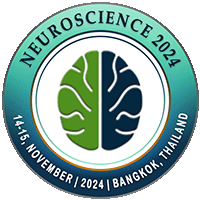
Giulia Eboli
Centro TIME Società Cooperativa Sociale, ItalyTitle: Beyond learning: experience of loneliness and emotional correlates in children and adolescents with specific learning disabilities and special educational needs
Abstract
The aim of the research was to investigate loneliness and some socio-emotional variables (quality of relationships, self-esteem and secrecy) in children and adolescents with Learning Disabilities. In the first study we aimed to investigate loneliness in an exploratory and qualitative perspective in children and adolescents with LD. More specifically, the goal was to explore the subjective experience of loneliness experienced by children and adolescents with LD and going to define what it meant for them "loneliness", investigate the context in which this feeling is more tried and strategies implemented in the face of such experiences. The second study, instead, compares the experience of loneliness and some socio-emotional correlates, including the quality of friendship, self-esteem and secrecy, in a sample of adolescents belonging to four different subgroups: adolescents with LD and adolescents with Special Educational Needs who adhere to a multidimensional intervention program in a Research and Learning Center; adolescents with Specific LD who do not participate in an intervention program; adolescents with typical development. In the third study it was decided to proceed with an exploratory survey on the use of new technologies (chats, social networks, etc.) by children and adolescents with LD. The aim was to investigate, in this generation of digital natives, the use of new technologies, not only as resources and compensatory tools at the academic level, but also as tools to connect to friends. In Study 1, it emerged that adolescents with LD experience mostly feelings of loneliness predominantly in the school context, linking it both at the time of the interval, and at moments of learning. Proceeding with a comparison, in Study 2, it emerged, contrary to what reported in the literature, that the adolescents with LD and Special Educational Needs who follow a specific intervention program, generally report a greater well-being compared to their peers who are at face the challenges of growth in an autonomous way. Finally, from the third study, investigating in an exploratory way, the motivation to use new technologies by adolescents with LD has emerged that they use chat and Social Network to stay connected to others, help them, trying to create a social network. It is therefore assumed that they are a positive tool, despite the enormous debate created in the literature on the use of these tools not always considered appropriate for these new generations.
Biography
Giulia Eboli - Psychologist, Phd. She is currently working in President Centro Time, coordinator area school and psychological support.

